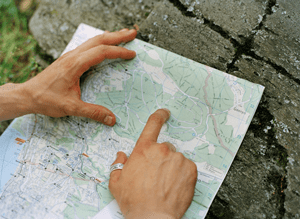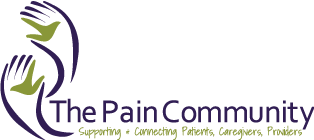 by Rebecca Rengo & Maggie Buckley
by Rebecca Rengo & Maggie Buckley
- Pennies: Save up for the extras as well as the trip costs. Pad the budget to include comfort items like a convenient flight time, an extra night to recover from the journey by arriving a day early, or a massage before/during/after the trip.
- Planning: Plan out the journey, the location and any contingencies you can imagine. Research the destination so that you know the climate and where the food stores, restaurants, hospitals and attractions are located. This research will help you to make your packing list and fine tune your budget. Contact the airline, train service, hotel, etc well in advance to arrange any special assistance or needs such as wheelchair assistance, special meals, extra pillows, etc.
- Packing: Make a list and check things off as you go. Pack what YOU will need. Figure out what the luggage limitations are for your mode of travel. Airlines have weight limitations while traveling by car means you might be able to bring that full-size bottle of your favorite Epsom salt lotion. Take care of yourself before the trip by packing at least one week prior to free up your mind and minimize stress. I use my spare bedroom as the preparation zone. Keep in mind that even if luggage is on rollers, there are times a suitcase will have to be lifted on a curb or into a vehicle – so pack light whenever possible.
- Prescriptions: Always pack your prescription and over the counter medications in their original bottles with original labels. Research your destination, especially internationally, to ensure that your medications are legal in that country. In case your prescriptions are lost or confiscated, you may opt to have new written prescriptions from your doctor with you. At the very least, carry a brief medical summary (See Figure A.) with you that lists your diagnoses, prescriptions, over the counter medications/supplements, allergies and treatment regimens. Consult your health care provider prior to the trip to calculate timing adjustments for medications or determine if other preparations (vaccines, tests, follow-up appointments) need to be arranged.
- Prioritize: Rate your time, your interests and your activities, etc. Know which activity may make you feel better or worse. Advocate for yourself and do what is in your own best interest. Taking a rest break at least every two hours is a wise rule of thumb before your pain becomes severe. If you are traveling by car—stop, get out of the car and stretch. If you are traveling by bus, train or plane—try to get up and walk the aisles. Try your best to stick with your diet and usual health routines (exercise, yoga, meditation, etc.) while traveling. This is particularly challenging with time changes and making key travel connections.
- Posture: Be aware of your body position at all times. Move around a bit if you are sitting in a plane, train or car. Be mindful of how you lift and carry anything careful not to twist or bend in a way that risks injury. Lift with your knees bent to protect your back.
- Pacing: Pace yourself by not over scheduling activities. Leaving gaps in the schedule will let you act on spur of the moment attractions as your energy level and body conditioning permits. If you find out you are in over your head, it’s okay to take a break. For, example, if you are with a group that’s hiking and you find yourself out of steam or far too uncomfortable, plan for a new rendezvous point. Agree to wait for them on a bench in the shade or go into and air-conditioned building to wait. That time on your own is great for meeting new people and asking them to share their stories – another great way to experience a destination. (Ideally, try not to wait alone in unfamiliar surroundings-hopefully one of your travel partners will agree to stay with you or you can find a location where you are not isolated.)
- Pre-trip: Take care of yourself before the trip. Packing a week (or longer!) before your departure gives you a chance to double check that you haven’t forgotten something important and you may discover you have extra space for another comfort item. Take it easy the day (or 2) before departure paying close attention to your nutrition, hydration and sleep needs. Add extra time to your healing activities to give yourself a little boost. This way you will feel more refreshed and calm to tackle whatever lies ahead.
- Post-trip: Plan to take a day or more to recover from the trip. Frequent travelers know that it will take about one day for every hour of time difference between home and destination to fully recover. For some this is as basic as not planning to go out for dinner or social events the first day or two after returning home. For others it may mean scheduling another day or two off of regular activities to get some extra sleep and comfort at home.
